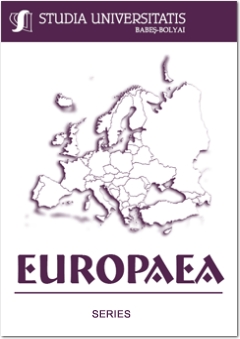ECONOMIC DIPLOMACY, A BILATERAL TOOL IN THE PERSPECTIVE OF THE EUROPEAN UNION’S EXTERNAL ACTION AND COMMON COMMERCIAL POLICY AFTER THE LISBON TREATY
ECONOMIC DIPLOMACY, A BILATERAL TOOL IN THE PERSPECTIVE OF THE EUROPEAN UNION’S EXTERNAL ACTION AND COMMON COMMERCIAL POLICY AFTER THE LISBON TREATY
Author(s): Philippe BekeSubject(s): Economy
Published by: Studia Universitatis Babes-Bolyai
Summary/Abstract: Already in the 1990’s, a good number of EU member states, in particular the smaller countries, claimed the need for a better harmonization of EU external policies. Although the Commission already had the authority to act decisively in matters related to trade under the former GATT as well as later on in the WTO, it lacked the authority to speak with one voice in matters related to foreign and security policy. As former US Secretary of State Henry Kissinger allegedly quipped in those days “I wonder who I have to call in the EU to speak about matters of high political importance. Is it the President of the Commission, is it the head of state of the rotating presidency or do I call a few member states and make a common denominator out of their comments?”. Caricaturizing as this may have been, there was some sense of truth in those words at that time. Although the mechanism of the rotating Presidency generally speaking was functioning well on the whole and the Commission did play a key role in much of the decision-making process, the EU did not speak with one voice on many occasions. Those member states that wanted a stronger Commission were also convinced that the key to a stronger future lay in strengthening the approach on a federal European Union.
Journal: Studia Universitatis Babes-Bolyai - Studia Europaea
- Issue Year: 58/2013
- Issue No: 4
- Page Range: 15-22
- Page Count: 8
- Language: English

